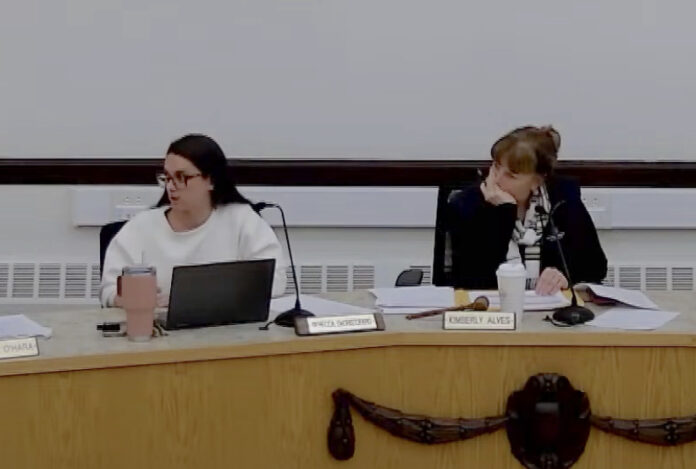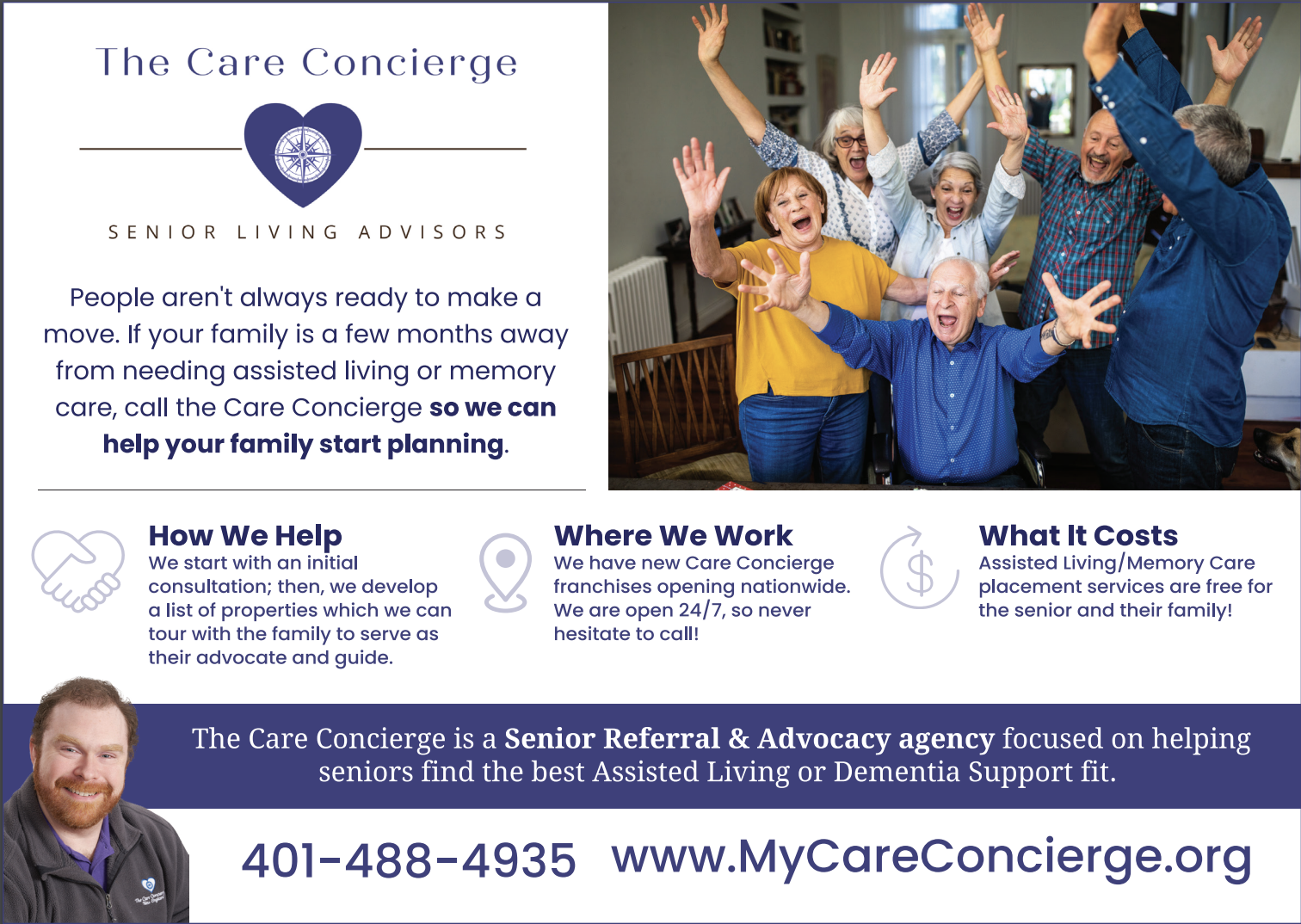NORTH SMITHFIELD – Should the Town Council set a professional standard of conduct for volunteers serving on North Smithfield’s boards and commissions?
Councilor Rebecca DeCristofaro thinks so, and she is asking for the Town Council to consider establishing a formal code of conduct for all those appointed to serve.
DeCristofaro brought the issue before the council on Monday, April 21, noting the move comes in reaction to recent posts she’s seen on social media – including one referring to her with an obscenity.
“I think we can all agree that our volunteers are incredibly important,” DeCristofaro said. “I think as elected or appointed officials, social media really should not be used to denigrate the town. It shouldn’t be used to denigrate officials, its programs or its residents. I think that continues to cultivate a community of divisiveness, and I think we really need to get away from that.”
The councilor noted that there’s an expectation that those serving on town boards behave in a professional manner, but currently, no formal policy. She added that representing the town in a respectable way “leads to collaboration.”
“It allows people to feel as though they live in a safe community where people want to be involved because they feel that their experiences and differences are appreciated and respected,” DeCristofaro said.
But Councilor John Beauregard questioned if such a policy could violate volunteers’ First Amendment rights, and noted that opinions on what’s appropriate could be subjective.
“What if I don’t think what somebody said was offensive?” he asked. “Where are we going to draw the line here? To say that you don’t like something somebody said on social media, you’re going down a very slippery slope there.”
Beauregard said he believes the appropriate time to address such behavior is when casting a vote during appointments.
“Who’s going to make that determination?” he asked. “I don’t think just because you got appointed to a committee that you give up your First Amendment rights.”
DeCristofaro noted that there are other towns that already have a code of conduct for board members.
“I’ve seen really great ones,” she said. “I’ve done some research.”
After the meeting, NRI NOW asked the councilor for examples of a such a code, and DeCristofaro noted that she has found several for towns in Massachusetts. One from Harvard, Mass. specifically notes that it applies to social media and dictates that all elected and appointed officials must follow the town’s anti-harassment and anti-discrimination policies. Officials, it notes, “must refrain from communicating or acting in a disrespectful, abusive and/or threatening manner,” towards members of the community, other elected or appointed persons and town staff.
In Rhode Island, the town of Warren has a code of conduct for board and commission members. While the language focuses mainly on behavior during meetings, one section notes that, “a board or commission member shall respect and comply with the law and shall act at all times in a manner that promotes public confidence in the integrity and impartiality of the board or commission on which they sit.”
In Burrillville, an effort to look at creating a code for members of the town’s committees is currently being considered by a subcommittee tasked with developing a policy, although it is unclear if proposed language would extend to social media, or merely dictate policy for things such as attendance.
Town Administrator Scott Gibbs noted that social media also becomes an issue when a volunteer discusses topics currently up for consideration before their board.
“That’s dangerous,” said Gibbs. “It undermines the transparency and the objectivity of our boards and commissions.”
Council President Kimberly Alves said the issue isn’t personal.
“I’m going to say – let’s include Town Council in this too – because you’re elected to do a job and you should portray yourself as a professional individual,” Alves said. “There are people that are going to try to get you to go to the level that they are at, but you know what? Let’s hope that we can have people rise above whatever it is they want (us) to do or say.”
DeCristofaro said that all those working in service of the town should be considered colleagues.
“If we worked in a corporate environment, there would be repercussions,” she said.
Town Solicitor David Igliozzi said he plans to look into the issue.
“The big elephant in the room is the First Amendment, just so we’re clear,” Igliozzi said. “If it’s about controlling what people say on social media – I need to research that.”
“I don’t think it’s necessarily about controlling what people say,” responded DeCristofaro, adding that she fears inappropriate comments will discourage those with different perspectives from volunteering. She noted that judging from online banter, the town is very divisive.
“We’re very disrespectful. I don’t know how we’re going to continue to have any change here or make any progress if we don’t have a community that supports each other. We have to be the change. We can’t just fall prey to allowing this sort of behavior.”
On her assessment of online banter, Beauregard agreed.
“We have an element in town of really rotten, awful people that love to go after people on social media,” Beauregard said. “Nobody’s been a bigger victim on this than I have.”
Still, he asked, “Who’s the judge?”
“What are we going to do? Are we going to throw them off the board? Are we going to punish them? Are we going to suspend then? It’s very messy.”
“You’ve just got to suck it up,” Beauregard said. “I don’t like it. When the time comes, don’t reappoint them.”
Gibbs said he plans to see if the Rhode Island League of Cities and Towns had any insight to offer on the issue.
“There are people whose life gravitate towards being able to throw insults online,” said Gibbs. “It’s just the way it is. It does come down to a leadership issue.”
“The onus is on all of us to take the high road in everything that we say and do, and that tends to filter through a community,” Gibbs added. “Sometimes, when we respond to those who just get their jollies out of being mean, we empower them and it only make it worse. There’s only so much we can control out there.”
Igliozzi said he will research the issue and bring it back before the council at a later date.
A note to readers: Any comments related to specific individuals, even indirectly, will not be published with this article. Please limit any discussion to the issue at hand.










The first ammendment is freedom of speech, not freedom of consequences.
You should be allowed to say whatever you want without risk of being jailed. But that doesn’t mean you get to say whatever you want, especially about people you are working with or for, without any consequences at all.
The supreme court has held up that things like obscenities towards a government employer are NOT protected under the first ammendment, as they directly interfere with the working environment. You can lose your position for doing that.
There are ways to voice your frustrations with someone you work with or for without resulting to obscenities.
A code of conduct for elected and appointed members will do the town well. I’ve been saying this since 2017 though, so hopefully this is a push in the right direction. It’s about time to hold individuals accountable for their actions outside of a vote every two years. Thank you DeCristofaro for bringing this item forward.